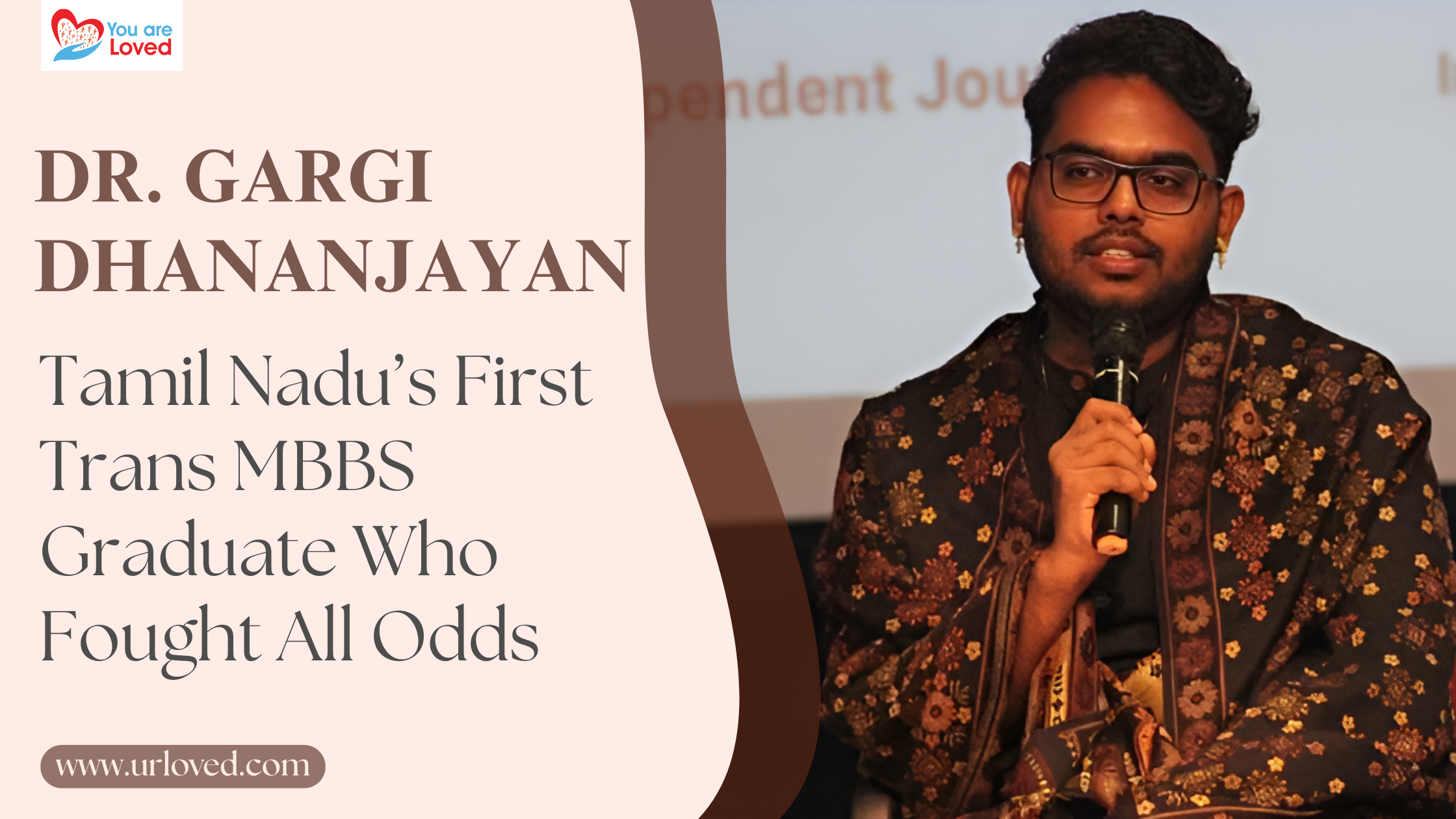
Dr. Gargi Dhananjayan: Tamil Nadu’s First Trans MBBS Graduate Who Fought All Odds
Early Life and Realization
Dr Vignesh Dhananjayan, now known as Dr Gargi, was born in a small village on the Tamil Nadu and Andhra Pradesh border. Assigned male at birth, she realised her true gender identity as a transgender woman when she was just 10 years old. Growing up in a rural background, Gargi faced financial struggles, social stigma, and discrimination.
Despite these challenges, she remained focused on education. With the help of a Tamil Nadu government scholarship, she became the first transgender person from the state to complete an MBBS degree. At just 25, Gargi has become one of the few transgender doctors in India, inspiring many others from marginalized communities.
Academic Struggles and Legal Victory
After completing her MBBS at Dhanalakshmi Srinivasan Medical College, Perambalur, in 2025, Gargi faced a serious setback. The college withheld her certificates, demanding an unfair hostel fee of ₹4.75 lakh, even though she had already cleared her dues with scholarships and personal funds.
Without her degree and internship certificate, she was unable to apply for a medical license. Refusing to give up, she approached the Madras High Court. On September 8, 2025, the court ruled in her favour, ordering the release of her certificates and directing the university to set up proper grievance redressal mechanisms for transgender students.
This legal victory was not just a personal achievement but also a step forward in addressing systemic discrimination faced by transgender students in higher education.
Struggles with Identity and Access
Outside academics, Gargi also faced bureaucratic and social hurdles. She had to make repeated visits to secure her transgender ID card, which is crucial to access government benefits. The process was delayed due to confusion between state and central authorities.
Her scholarship process, too, involved constant follow-ups before the funds were finally released. During her internship, she faced workplace harassment and lack of institutional support. These repeated struggles deeply affected her mental health, and at one point, she even attempted suicide. Yet, her resilience pushed her forward.
Fighting for Horizontal Reservation
Gargi’s journey has made her more determined to fight for justice, not just for herself but for the entire transgender community. In April 2025, she filed a petition in the Delhi High Court against the All India Institute of Medical Sciences (AIIMS) PG admission process (INI CET July 2025 session).
Her demand was simple but powerful — at least 1 percent horizontal reservation for transgender persons in postgraduate medical courses. Horizontal reservation ensures fair representation of disadvantaged groups such as women, persons with disabilities, and transgender individuals within each vertical category like SC, ST, and OBC.
This case follows the footsteps of other transgender doctors across India. For example, Dr B Venkata Bhagiradhy Mythrraa in Andhra Pradesh and Dr Ruth John Paul and Dr Praachi Rathod in Telangana have also approached courts seeking equal opportunities in postgraduate medical admissions.
Why Horizontal Reservation Matters
The Supreme Court’s landmark NALSA judgment in 2014 recognised the rights of transgender persons, including the right to self-identify their gender. It also directed governments to extend reservation in education and jobs. However, it placed transgender persons under the broad Socially and Educationally Backward Classes (SEBC) category.
Many activists argue that this fails to recognise the unique discrimination transgender persons face. Rights activist Vyjayanti Vasanta Mogli explains that putting transgender persons into an already crowded OBC pool limits opportunities. True justice can only be ensured through horizontal reservation, which gives them space across all categories.
As Gargi’s lawyer, advocate Rohin Bhatt, points out, the Constitution provides enough scope for such measures under Articles 15 and 16, and courts must take into account the layered discrimination transgender people face.
A Doctor for All
While Gargi is passionate about serving the trans and queer community, she firmly believes her duty extends to everyone. In her words, “Yes, I want to treat the trans and queer community, but I also want to help everyone regardless of their gender or sexual orientation. My passion is to serve all people, and to do that effectively, I need to pursue higher studies.”
Her dream is to specialise in medicine through postgraduate studies, ensuring not just her growth but also proper representation of transgender voices in the field of healthcare.
A Story of Strength and Hope
From a small border village to becoming Tamil Nadu’s first transgender MBBS graduate, Gargi’s journey is nothing short of extraordinary. She overcame stigma, harassment, financial struggles, and even legal battles to reach where she is today.
Her story is not just about earning a medical degree — it is about demanding dignity, justice, and equal opportunities for her community. By fighting for horizontal reservation and fair treatment, Dr Gargi Dhananjayan is paving the way for a more inclusive and compassionate medical system in India.
Her courage proves that education is not just a personal milestone but a tool for social change. For thousands of young transgender people across India, Gargi’s life stands as a symbol of hope and strength.